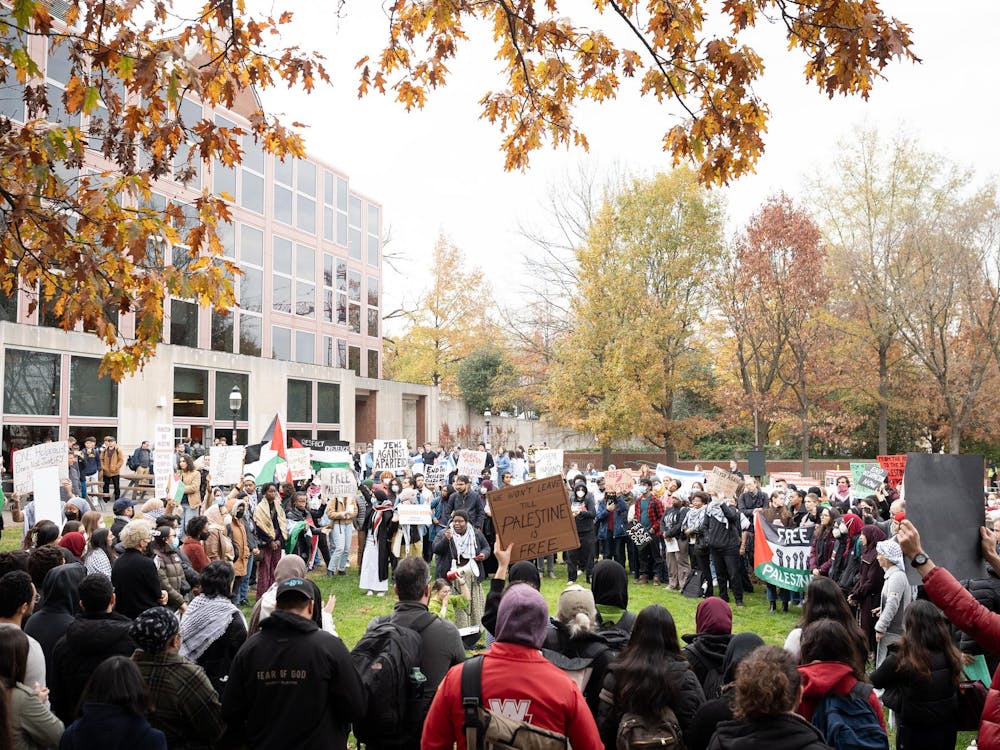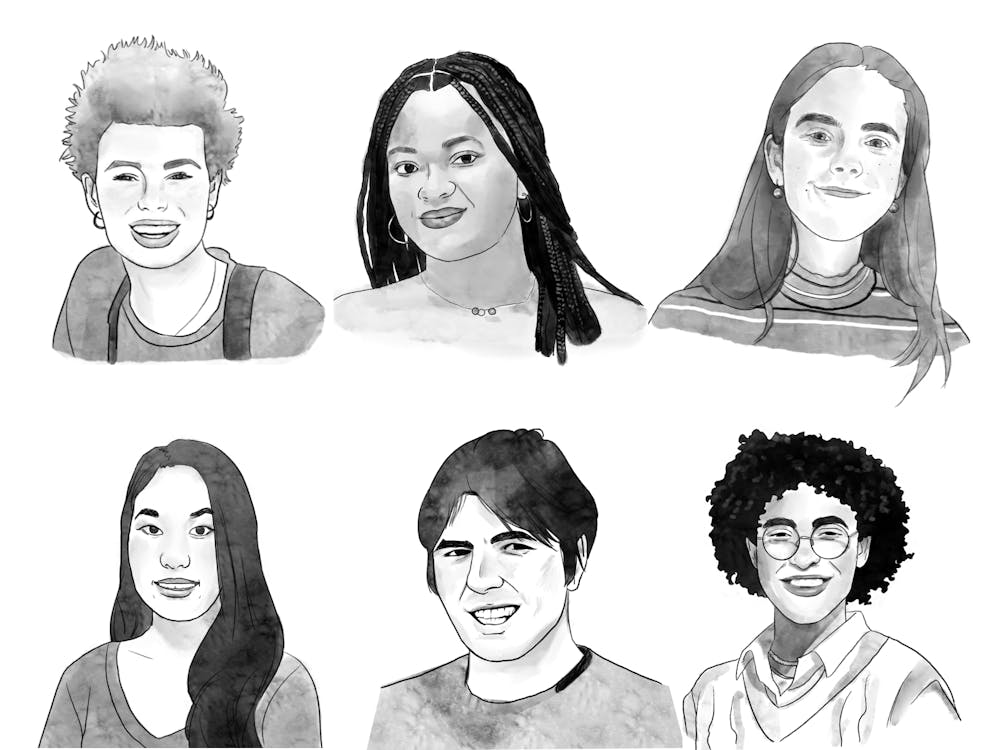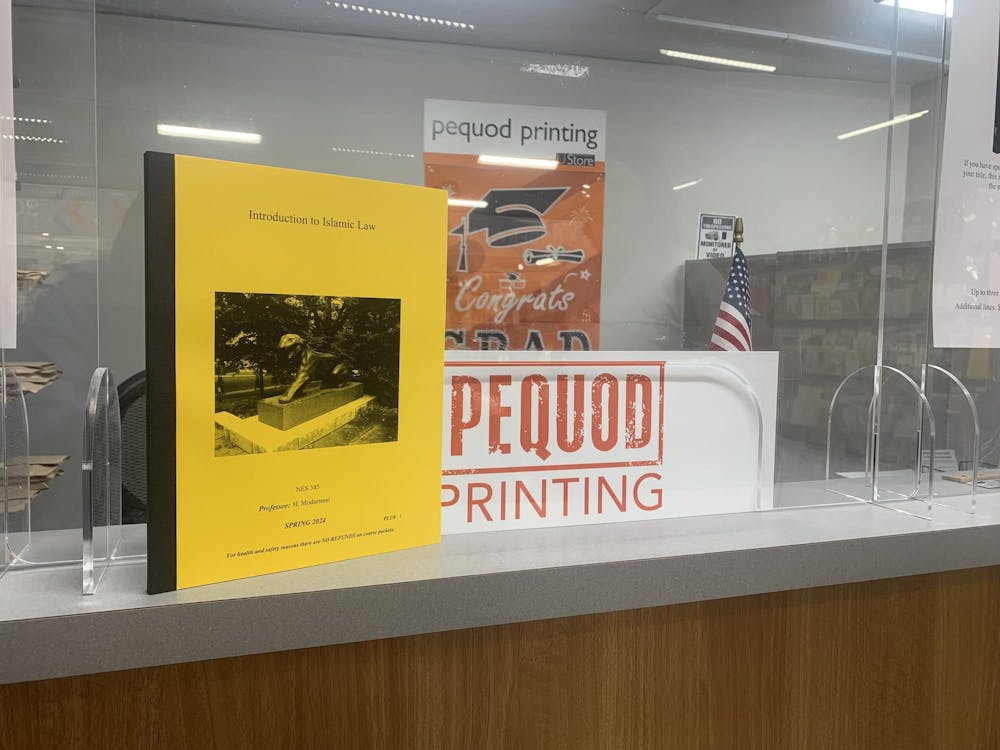If you go to the second floor of Frist and walk down the hall of classrooms, you’ll see an exhibit all about the 13th President of Princeton and 28th President of the United States, Woodrow Wilson. Not unfamiliar to controversy, Wilson has undoubtedly been on the minds of Princeton students and the public in recent years given debates and protests surrounding the President’s controversial stances on the civil rights of African-Americans in the 20th century. This exhibit, entitled “In the Nation’s Service? Woodrow Wilson Revisited” and created by Princeton’s Seeley G. Mudd Manuscript Library, doesn’t shy away from the truth and provides a holistic view on the American figure’s public service, encouraging students, faculty, and anyone passing by to, as the title suggests, revisit the legacy of one of America’s most well-known Presidents.
By offering a deep look at Wilson’s two-term presidency and focusing not only on its successes but also shortcomings, the exhibit channels the complexity of the President’s place in American history. In a way, this exhibit is continuing the legacy of last year’s protests and widespread debate.
This exhibit will be moving around campus for the entirety of the 2016-17 school year and embraces the idea that education, open discussion, and joint understanding are paramount in any debate or point of contention. Effectively showing both sides of Wilson’s place in history, positive and negative, the exhibit invites people with different views to engage in learning about his history not only to enhance their own perceptions of this historical figure but also to encourage sympathy and understanding for opposing points. A dialogue was fostered; mutual education ensued.
This initiative gets at a broader point. When there are topics or situations that go against our own opinions and beliefs, as hard as it may seem, we must try to not act irrationally simply out of pure anger or frustration. We can’t just allow our immediate rage and discomfort to fuel our actions because it makes us blind to sympathy, understanding, and compromise. Rather than simply writing off Wilson completely, we need to foster a discussion, a dialogue on his time as president and fully analyze the complexities of his legacy.
We have to act based on rationality, on sense, on truth, and fact. This is because when we examine something in an unbiased lens with an open mind, we are able to empathize with the other side. In small strides, we learn to understand the forces that truly motivate those who think differently than us. Don’t try to make an enemy out of those who oppose you — show them your thoughts, your side, your struggle. Make them your friend rather than an eternal counterpart.
We live in a highly polarized world that we believe tends to set us apart, whether it be politically, religiously, or racially. But we shouldn’t let these divisions stop us from understanding our fellows and making an effort to understand each other. Sometimes, the tendency is to close ourselves off from those who believe something different, rejecting even the chance of genuinely hearing their concerns.
Especially now, in the wake of the contentious presidential election and campaign season that focused on a number of divisive issues, it can seem easy to shut ourselves off to those who oppose our beliefs. Both halves of the nation can continue operating in their separate spheres, forcefully rejecting any idea of humanizing and attempting to understand the other. But it can’t be like this. No matter how difficult, reach out to those across the gap; create a dialogue. It’s only through this revision of our counterparts that we will ever be able to progress meaningfully.
It is in places like Princeton and other universities around the world where the need to produce cross-cutting dialogue is most important. Educational institutions stand as symbols of nuanced thought and open dialogue. The Wilson exhibit on campus and the ongoing debate demonstrate a valiant attempt at bridging this gap between opposing camps of opinions. It doesn’t take much for us to open our minds to something different, but its effect on us is truly profound.
Kaveh Badrei is a freshman from Houston, Tex. He can be reached at kbadrei@princeton.edu









